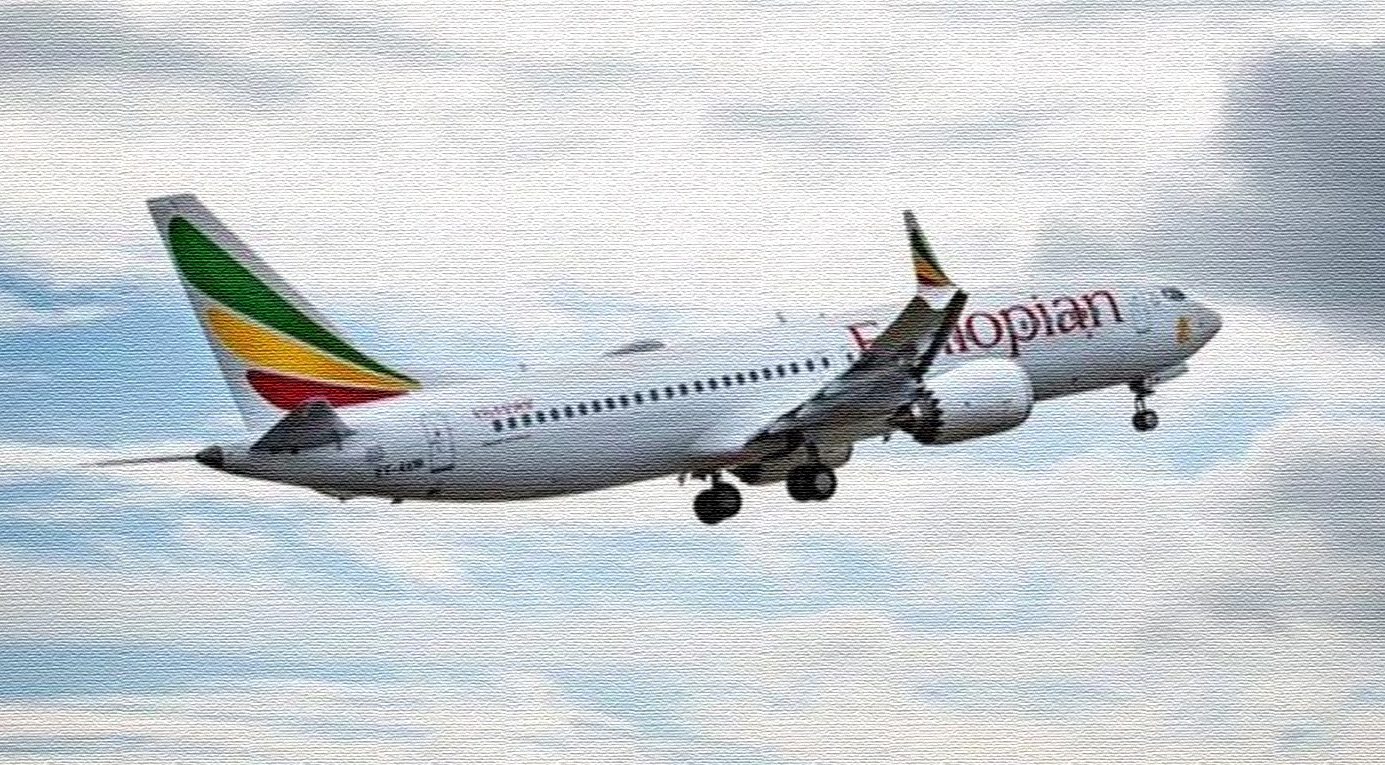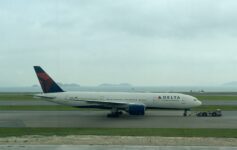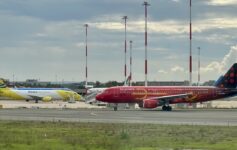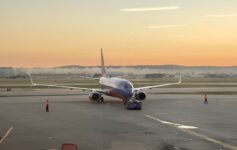121pilot, a commercial airline pilot in the USA, has graciously written a three-part series on the history of aircraft groundings. Today, we explore part three, on the current Boeing 737 MAX grounding. Click here for part one on the propellor age and here for part two on the jet age. Today’s post includes the author’s opinion on what went wrong with the Boeing 737 MAX.

The 737 MAX recently became the ninth aircraft type to be grounded after the FAA determined that Ethiopian 302 had likely crashed for the same reasons as Lion Air 601. However, the decision to ground the 737 MAX is quite unique when compared to those before it.
The types that have been grounded previously were grounded in response to the discovery of a serious threat to flight safety like structural failures and fires which could not be addressed through crew action. Because of this, in all of those prior cases, there was a path back to flight. The fact alone that an accident had occurred was not enough of a reason to ground an aircraft. It was only when a specific threat had been identified that the planes were grounded. With a grounding having been based on that threat, the grounding could be lifted once measures had been put in place to address it.
But with the MAX we have a grounding that appears to be based on the crew’s inability to follow standard and well-known procedures to address a specific threat. If the Maneuvering Characteristics Augmentation System (MCAS) activating when it should not renders the MAX unfit for flight, then why wasn’t the 737 MAX grounded after the Lion Air crash? The answer is of course that it does not. Because if the crew follows established procedures for a trim run away (which are a required memory item on the 737) then the system can be immediately overridden.
I think this bears repeating. The issues, potential problems, and failure modes with MCAS on the MAX were all there after the Lion Air crash. Yet, not one regulator or airline believed there was a need to ground the airplane. We don’t have any reason to think this problem is potentially more dangerous or lethal than we did at first. We know that had the Lion Air crew followed established procedures (as the crew of the prior flight on that aircraft did) they could have safely flown the aircraft. If the Ethiopian crash comes down to the same cause (faulty MCAS activation) as Lion Air, then isn’t the accident once again going to be the direct result of a crew that failed to follow proper procedure? Procedures they had just been reminded of and trained on as a result of the Lion Air crash…
The Problem
It seems based on the totality of the circumstances that the FAA and other regulators grounded the MAX because the public wanted it grounded, not because there was a condition that merited it. The problem this creates is how can you return the aircraft to flight?
MCAS can’t be deactivated because it is absolutely required in order for the aircraft to meet certification standards. The chosen path forward right now seems to be a software fix that will limit how many times MCAS can activate. This software will disable it entirely when the Angle of Attack (AOA) sensors disagree. That’s good and it’s a change that Boeing was working on before the Ethiopian crash. But the possibility remains in the 737 (of all variants) that a malfunction could result in a nose down trim run away.
So as long as the possibility exists of a system running in nose down trim when it shouldn’t, how can you now tell the public it is fixed and safe to fly again? You can’t tell them that possibility is accounted for by the flight crews following an emergency procedure because you’ve already said that wasn’t good enough when you grounded the airplane. Which leaves the FAA and Boeing, assuming that the cause of Ethiopian 302 is the same as Lion Air 601, with a fix that doesn’t address the primary cause of the accident. Because if they share a common cause it is not going to be MCAS or an AOA sensor, but rather pilots who didn’t do what they were supposed to do…




This is a garbage opinion that ignores decades of aviation history, research, and understanding of the causes of plane crashes and incidents.
It’s like saying “well, the engines shut off in mid flight, but the pilots didn’t follow established procedures to land safely so it’s their fault!”
If a plane crashes after a crucial equipment failure and the pilots don’t (or are unable) to handle that equipment failure, the ultimate cause of the crash isn’t the pilots; it’s the equipment failure!
The difference here is that the equipment failure was a well known possibility for which the pilots had specific training on how to counter act and they did not do so.
Let’s use an engine failure as an example. If an engine fails on takeoff every airliner out there is designed to survive that failure. We train that failure regularly. We have standard procedures that we as professional pilots are expected to follow that will allow us to handle the failure and land the airplane safely. So if an airliner had an engine fail on takeoff and subsequently crashed because the pilots did not follow any of their well known and trained procedures would you blame the airplane? Yes an engine failure in that case would certainly be a contributing cause. But the ultimate root cause of that hypothetical accident would be pilot error. Just like AF447 and Colgan Air 3407 were in the end pilot error events.
In every previous grounding there was a root cause behind the grounding that could not be mitigated by a change in procedures or by crews properly following procedures. This case is different.
Yes I’m an Airbus driver. But my friends who fly the 737 are unanimous in their opinion that the plane is safe and should not have been grounded.
just to check, you are saying that the pilots caused both crashes and the Boeing 737 max had nothing to do with it? whilst this may be the findings of the investigation, given they haven’t announced their finding yet I wonder how much Boeing is paying you to help their public image and tarnish the pilots …
100% Agree! Well said.
Soo…. You’ve previously admit you are not boeing pilot but airbus pilot. Yet you are able dissecting cause of accident far before investigator which had access to primary facts can conclude anything? You must be very smart!!
Why hide behind an avatar of “bla bla bla pilot”? Afraid someone cross referenced your credibility?
I’ve enjoyed this series thus far, but have to disagree with the author on this one. There are a lot of issues with the MAX that were allowed to happen thanks to the rush that Boeing had to keep up with Airbus, and the regulatory community’s desire to keep Boeing happy. Improvising a new aircraft that has difficulty maintaining stable flight without computer assistance (MCAS) for one. Trying to keep that on the down-low, so as not to trigger additional training requirements is another. So yes, the problem clearly IS with the aircraft and it’s handling characteristics and not necessarily with the flight crews.
Nobody knows for how long this type will be grounded. But I know that I will never be totally comfortable with the 737MAX, knowing just what kind of radical plastic surgery it took to sell it to customers – and what that did to the handling of the aircraft.
I’m not suggesting that changes to the MAX don’t need to be made. MAX pilots should absolutely have been told about and trained on MCAS. They should have been trained on the differences in trim disconnect procedures between the MAX and the NG. The MCAS software absolutely needs to be changed in the manner that Boeing has discussed.
But many new types have teething troubles. Problems are discovered and rectified over time. But in the past we have not grounded a type over issues like this. Look at the history on the DC-10 and it’s Cargo door problems. The Comet similarly had early crashes that were addressed without grounding the type. If the MAX had to be grounded why didn’t that happen after Lion Air? All the issues were front and center yet everyone believed that training and SOP’s addressed the threat. The fact remains. If the crew of Ethiopian flight had followed the procedures they had just been trained on the airplane would not have crashed.
Preliminary results of NTSC (indonesian ntsb) indicating pilot error and air worthiness of the plane itself, which later spiralling into controversies.
I believe I’ve told before in this blog that in air accident, boeing rep arrives together with local investigator, while airbus rep only available upon request. Yep, the purpose is to cover up. Tone down bad publicity. Damage control.
Even tough some families and relatives of lion air victim has filed suit against boeing, nobody knows about it. Even tough some pilot association in usa has publicly filed complaints, nobody cares.
Then ethiopian happened. No matter how you gift wrap it, shit is shit. Its bound to known. Boeing may try to employ anonimous pilot for damage control in some frequent flyer blogs. But the smell already leaked….
Your welcome to your opinions of course though mine obviously differ. The reasons I’m not to using my name should be obvious. Matthew knows who I am and who I work for. I’m not getting anything from Boeing or anyone else for writing these articles. Frankly Boeing wouldn’t like me as a corporate shill I’m far too blunt.
I’ve been in the business of flying for over 20 years through various aircraft and airlines. I’ve been clear that I’m not typed in the 737 but as I’ve said my feeling on the matter are shared by the 737 drivers I do know. I’m writing because I enjoy it and I hope it opens the cockpit door a bit so to speak to invite those of you who make my dreams of flight possible by buying tickets.
There is little a pilot likes to talk about more than flying so if you have questions or things that you’ve (the you being the collective group of readers of this blog) always wondered about feel free to ask. It might just give me a chance to write something else for Matthew.
Thank you for clarifying that you wrote because you enjoy it. Not because you understand about it.
It gave new perspective to readers.
You’re acting tawdry James.
With respect to the Ethiopian Airlines accident, we don’t know what the pilots did or didn’t do yet so it’s too early to lay blame there. We now know that the MCAS system was operating before the crash, so here we go again.
Why it did this on takeoff is a question for the investigators. Why it has to exist at all is because the Boeing decided to cut corners when designing a new aircraft and ended up with a piece of equipment that is somewhat unstable due to the engines that are oversized for it’s frame. That makes this a more serious issue (in my opinion, at least) than some of the past groundings that you referenced. The fundamental design of this aircraft is shaky enough that automated functions are necessary for it to maintain stable flight during certain very ordinary maneuvers.
I’m not very fond of the opinions here and on previous articles regarding the 737 MAX grounding. I do appreciate other articles not related to Boeing. They are overly biased, and I’m from Argentina which uses Boeing 737 a lot, so no “airbus vs boeing” heart whatsoever.
The FBI investigation regarding it’s certification process should rings some bells regarding the safety of the aircraft, taking into account human-machine interfaces and commonality between types.
I understand pride regarding a US company, but if the pilot is to blame, (and we’re not discussing changes in the certification documentation which no one knew) we’re discarding the company’s and FAA responsibility regarding certification on this new type. Maybe the “know procedure” was not good enough, and as we found out, only used by chance. Not to mention the quality of the MCAS system itself that it uses only one sensor as Boeing stated on the information regarding the fix, for a “Hazardous” system. We should know more, but we also should be cautious because if Boeing says there is a fix, is a fix for something that it is not working properly, or it’s not properly designed…
No, the grounding was NOT as a result of a public frenzy . Airline authorities around the woRld made reasoned judgements that it had to be grounded …and the USA eventually gave it to that flood of decisions ( Matthew is fond of quoting Churchill but assiduously avoids this one: “ Americans always do the right thing, after they’ve tried everything else”. Quite apt in this situation.)
One the other hand, the rush to judgement seems to be in blaming those incompetent, third world airlines and pilots.
I don’t like the overly cozy relationship between Boeing and regulatory authorities, nor the sleazy deals done for marketing advantage. This story is far from over and won’t be swept under the rug by some post facto software fix.
@matt
Re: tawdry
Adjusting to the language of the theme. just like speaking nihongo to japanese or mandarin to chinese. You get the point.
I think this post should be updated to reflect the fact that the pilots did, in fact, follow Boeing’s recommend safety protocol: https://www.nytimes.com/2019/04/04/world/asia/ethiopia-crash-boeing.html
Though an opinion, it’s a slanderous one, and it should be rebutted at top by the actual facts of the situation.